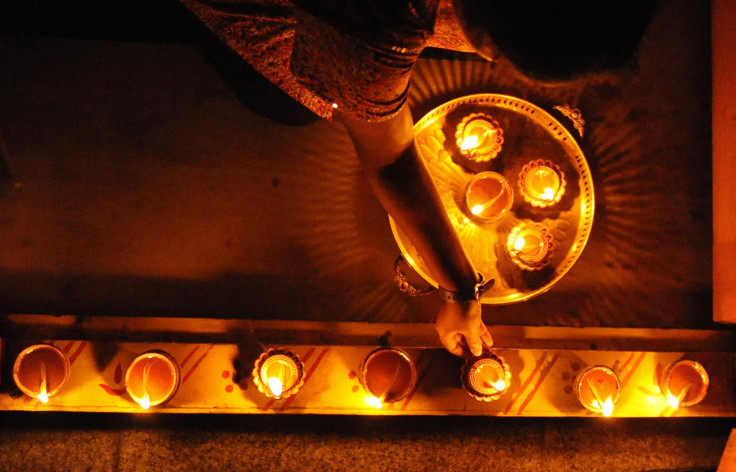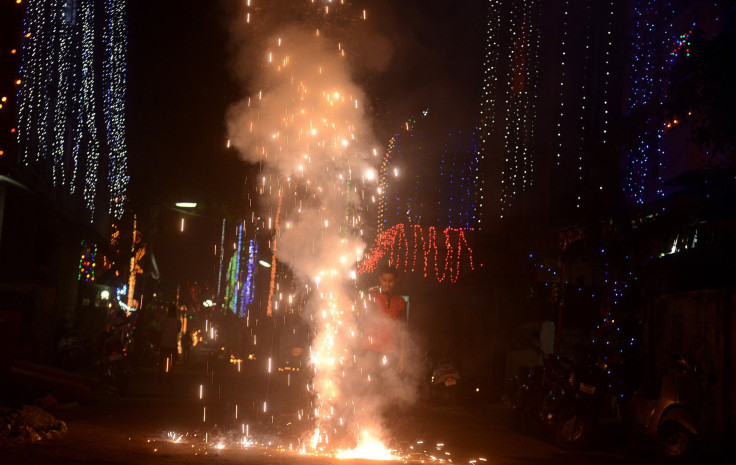Diwali 2017: Date, Facts And Celebrations For The Indian Festival Of Lights

The Indian festival of lights, called Diwali, also known as "Deepawali," is the five-day festival celebrated by Hindus, Sikhs, Jains and Buddhists around the world.
While the holiday is observed by people of different faiths for several different reasons, they all acknowledge the festival’s underlying theme: The victory of good over evil and the triumph of light over darkness. The word Diwali consists of two Sanskrit words — "light" and "row," as many Indians use rows of clay lamps to decorate their homes and temples during the festival.
As it is celebrated by different religions, they have different reasons for it. For Sikhs, the festival marks the release of Guru Hargobind from prison. For Jains, it commemorates when the prince Mahavira, also known as Vardhamana, achieved moksha — freedom from the cycle of life and death. Newar Buddhists in Nepal, celebrate Diwali to worship the goddess Lakshmi.
When is Diwali?
Diwali in India this year falls on Oct. 19. Diwali generally occurs during late October or during early November every year. Essentially the Diwali date usually falls on the 15th day of "Kartik," which is a Hindu month. Hence, the exact date varies every year, according to the Hindu Lunar calendar.

How Is It Celebrated?
As it is the festival of lights, people light oil lamps, known as diyas, and candles, but there are huge firework displays to mark the return of Rama, according to Hindu legend. But each day of Diwali also has its own rituals. On the first day of the festival, observers clean their homes.
On the second, people decorate their homes with colorful floor patterns called "rangoli." The third day, which is the main day of the festival, is when the lamps are lit and prayers are offered to goddess Lakshmi and then a whole evening of feasts and festivities follows.
Day four is a significant day that celebrates wives and husbands, while the final day celebrates the relationship between brothers and sisters.
What does Diwali mean for different religious traditions?
In West Bengal, Diwali is mainly dedicated to the worship of goddess Kali. Lord Ganesha is also worshiped by a lot of people during Diwali, as he is considered to be auspicious.
In ancient Hindu tradition, Diwali is marked as the return of Lord Rama, his wife Sita and brother Lakshman to Ayodhya, after the end of a fourteen-year-long exile. It has been said that to celebrate the return of Lord Rama, the people of Ayodhya lit the entire kingdom with earthen diyas (oil lamps) and set off crackers.
Here are some greetings and wishes to share with friends and family on the auspicious occasion of Diwali.
- Another year will be over, another year will come. I hope and pray that the lights of Diwali illuminate the new chapter of your life. Happy Diwali!
- The significance of Deepavali is the removal of darkness and ignorance from the mind and filing it with goodness.
- On this auspicious festival of lights, may the glow of joy, prosperity and happiness illuminate your life and your home. Wishing you a Happy Diwali.
© Copyright IBTimes 2024. All rights reserved.






















